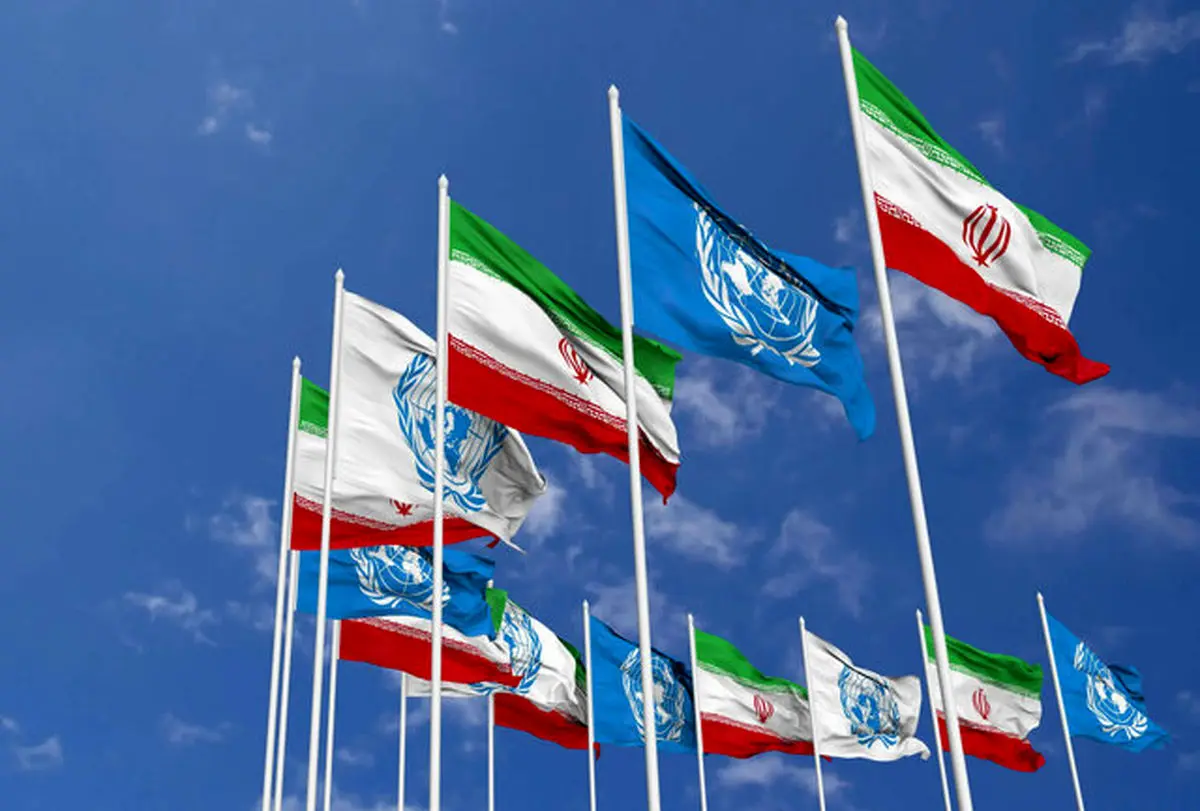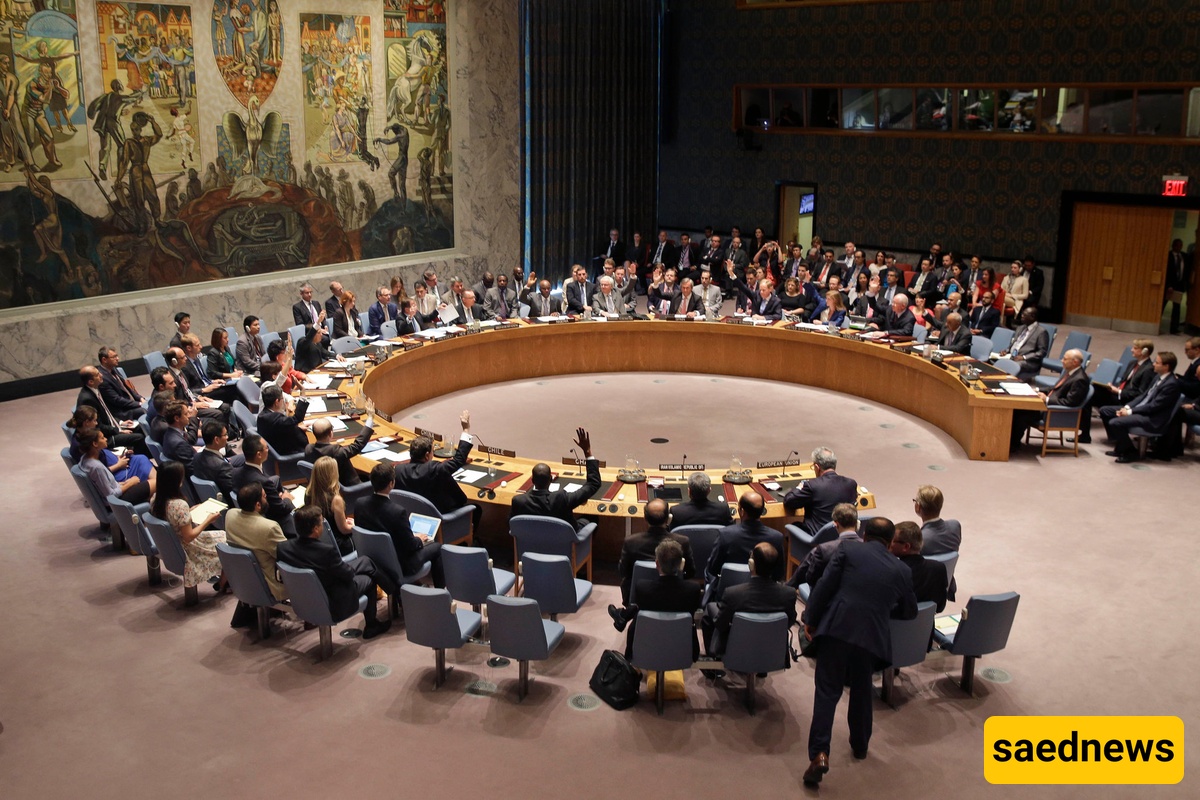SAEDNEWS: The foreign ministers of the UK, France, and Germany urged the UN Security Council to maintain oversight of Iran’s nuclear program, citing ongoing non-compliance, and proposed a limited extension of Resolution 2231 to allow diplomatic negotiations to continue. They emphasized readiness to reimpose sanctions if Iran rejects diplomacy.

8 August 2025
High-Ranking Official,
United Nations Security Council Resolution 2231 (2015), which endorsed the Joint Comprehensive Plan of Action (JCPOA) and assigned the Security Council oversight of Iran’s nuclear issue, will expire on 18 October 2025.
Nevertheless, the international community continues to face serious and persistent concerns regarding the uncertainty over the exclusively peaceful nature of Iran’s nuclear program.

Commitment of the Three European Countries to Diplomacy
Over more than twenty years of diplomatic effort, the three European countries have remained united in their goal that Iran must never pursue, acquire, or develop nuclear weapons, and that a negotiated solution providing credible guarantees must be achieved through diplomatic channels.
The European countries have long engaged with Iran to address international concerns about its nuclear program. These diplomatic efforts, coordinated with close partners, led to the adoption of the “Initial Joint Action Plan” in 2013, the signing of the JCPOA in 2015, and ultimately the adoption of Security Council Resolution 2231 (2015).
Since then, despite the intensification of Iran’s nuclear activities, the European countries have consistently adhered to their commitments under the JCPOA and Resolution 2231.
Following the United States’ withdrawal from the JCPOA on 8 May 2018 and Iran’s regrettable decision to halt implementation of JCPOA commitments from May 2019, the European countries remained in the agreement and sought, through months of negotiations in 2021 and 2022, to bring all parties back to full compliance.
These efforts failed due to Iran’s refusal to accept generous proposals at that time, yet the European countries have remained in contact with Iran to seek a peaceful diplomatic solution and have not participated in any military planning or action against Iran.
Ongoing European Efforts for Diplomatic Progress
Ten years after the JCPOA’s signing, our commitment to diplomacy remains firm. Diplomatic efforts continued through meetings between the foreign ministers of the three European countries and the EU High Representative with their Iranian counterpart in Geneva on 20 June, and political directors from the three European countries and the EU with Iranian deputy foreign ministers in Istanbul on 25 July.
Given that the risks from Iran’s nuclear program to international peace and security have not diminished, and nuclear activities continue without credible justification for their non-military nature, the Iranian nuclear crisis must remain on the Security Council’s agenda.
Iran has not only failed to meet its JCPOA commitments but has also violated its legal obligations under the Comprehensive Safeguards Agreement, denying IAEA inspections and raising concerns about its commitment to the peaceful nature of its program through recent statements suggesting a potential withdrawal from the Nuclear Non-Proliferation Treaty.
Without a strong, sustainable, and verifiable agreement, we cannot allow Security Council decisions and the related international framework to become ineffective.
Direct negotiations between Iran and the United States must resume immediately, and the European countries are ready to support this process.
Accordingly, the European countries have proposed a temporary extension of the relevant provisions of Resolution 2231, contingent on Iran resuming negotiations and addressing the most urgent international concerns regarding transparency and the scope of its nuclear program. This proposal has so far remained unanswered.
Such an extension would provide additional time for negotiations to achieve a new agreement while preserving the option to reinstate sanctions to prevent nuclear proliferation.
Europe’s Unquestionable Ability to Utilize Resolution 2231
The European countries have always been committed to using all available diplomatic tools to prevent Iran from acquiring nuclear weapons. They have made it clear that if Iran fails to engage in a diplomatic solution or misses the opportunity for extension by the end of August 2025, they are prepared to activate the automatic re-imposition of sanctions.
Contrary to unfounded claims, as JCPOA members, the European countries are legally fully entitled to use the relevant provisions of Resolution 2231 to reinstate UN sanctions against Iran, including enrichment prohibitions and Security Council sanctions.
Iran’s Non-Compliance with JCPOA Commitments
Since 2019, Iran has deliberately and publicly moved away from its JCPOA commitments, documented in more than 60 IAEA reports over six years.
By accumulating 8,400 kilograms of enriched uranium—over 40 times the JCPOA limit—enriching up to 60%, operating at prohibited sites, producing and installing thousands of advanced centrifuges, and nearly halting monitoring and verification obligations, Iran has openly violated the agreement.
This situation provides the European countries with a clear legal basis to notify the Security Council that Iran has seriously breached its commitments and, under Paragraph 11 of Resolution 2231, to activate the sanctions re-imposition mechanism.
Use of the Dispute Resolution Mechanism
The European countries have consistently sought to resolve issues arising from Iran’s non-compliance, including activating the dispute resolution mechanism on 14 January 2020 and continuing good-faith dialogues to reach a diplomatic solution.
Nevertheless, Iran activated this mechanism in July 2020, more than a year after halting its commitments. Any other claims in this regard have never been recognized by JCPOA members.
Conclusion
Since 2019, the European countries have invested significant time and energy to resolve the crisis caused by Iran’s non-compliance with the JCPOA. Today, Iran not only refuses to implement its commitments…

